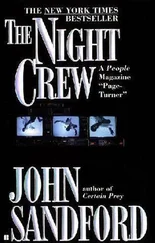“Let me start with a quick review,” Greenberg said. She touched her slate and looked at it. “Yesterday, when we had Reactor 1 up to eighty percent output, we suffered a side blowout in Heat Exchanger 1 below the slot nozzle about three-quarters of the way outward on the nozzle boom. We’re still investigating the cause of the blowout, but we registered a control anomaly in one of the heaters in the vicinity of the blowout before it occurred. We were in communication with Dr. Johansson over how to deal with the anomaly when the blowout occurred.
“At 1:17 P.M., ship’s time, Dr. Johansson’s service egg was struck directly by a large slug of radiator melt, several hundred kilograms, traveling at tens of meters per second. Essentially all onboard systems—power, propulsion, communication, life support—were instantly disabled or destroyed. The impact threw the egg away from the ship at substantial velocity. Mr. Darlington’s egg was also struck by escaping melt, but the damage was less severe and Mr. Martinez brought him safely into the hangar bay.”
She touched her slate again, scrolling. Greenberg had had a taste of the same drugs that were smoothing out Darlington.
Greenberg continued. “As soon as Engineering registered the blowout, we initiated an emergency full shutdown. We dropped partitioning baffles into HE1’s melt reservoir, which were successful in slowing and eventually stopping the hemorrhaging of radiator melt into space. We were able to recover much of the melt using the procedures we developed after the first radiator test in Earth’s orbit. We still lost a few tons of metal, but that’s well within our reserve allowance for the heat exchanger system, especially in our new situation. Which brings me to the measures we are currently recommending.”
Fang-Castro said, “Excuse me, but for the purposes of this record I would like to insert that all evidence shows that Dr. Johansson was killed instantly upon impact. Accordingly, we concentrated our efforts on containing the damage to the ship rather than recovering her damaged egg. A trajectory for that egg has been calculated and has been entered into our ship’s records, as a contingency in the unlikely event that there should someday be the possibility of a recovery.” To Greenberg, she said, “Go ahead, Wendy.”
“Yes. At this time we don’t think we can repair the breach in the heat exchanger wall. It’s right below the slot nozzle, which is a very precisely designed and controlled assembly. We can’t patch the hole without altering the behavior of the nozzle in that area and, as we’ve seen previously, the radiator ribbon system is challenging to control and even more difficult to model. We don’t feel comfortable that we can repair this section without risking a major failure on start-up.”
She looked around the table, and then spoke directly to Fang-Castro: “Fortunately, this should not be necessary. With only one functional reactor, we do not need the entire capacity of the heat exchanger-radiator system. We think we can wall off the heat exchanger and terminate the slot nozzle just inboard of the damaged section, which will still leave us with seventy percent capacity on that side. We plan to make the same modification to the undamaged HE2 system to keep performance symmetric. That still leaves us with the capability to dissipate a hundred and forty percent of the entire output of Reactor 1. That’s pretty much it for the moment.”
“So we won’t be going out to the Horsehead, or wherever,” Fang-Castro said. “How long before we’re up and running again?”
“I can’t give you a good estimate, yet,” Greenberg said. “I don’t think a week. The heat exchangers need to cool down enough that we can work on them. While we’re equipped to make these kind of modifications, it’s not something we ever had to do in the field.”
Fang-Castro turned to the exec: “Mr. Francisco, what does Navigation tell us?”
“Ma’am, the good news is that we’re in no immediate danger. When we can get power back, we’ve got enough reserves in our water tanks that we can still make a rendezvous with Saturn. We could even return to Earth directly if we had to, although it would be slow and life support might be stretched very thin.”
“And the bad news?”
“The bad news is that we’re still outward bound at full velocity, so we’re going to overshoot Saturn’s orbit. Every day without propulsion adds fifteen million klicks to our overshoot. We won’t be able to make a direct rendezvous with Saturn. We’ll fly on past, bring the ship to a full halt, and then fly back to Saturn.”
“And we have the reaction mass for that.”
“Yes, but we don’t have unlimited amounts. Flying that second leg from beyond Saturn back in, the maximum velocity we can achieve is around twenty-five kilometers per second and still stay within our mass budget. The way Nav figures it, every day of overshoot costs us nearly a week on the trip back in. What it comes down to is that we’ve already lost almost two weeks on our arrival time and every additional day that we’re in free fall delays our arrival at Saturn by another week.”
Fang-Castro nodded. “Our ETA was February 15. Another week’s downtime, Dr. Greenberg, moves that out to, hmmm, April, days after the Chinese are projected to arrive. That’s not really acceptable.”
Martinez asked, “Wendy, why can’t we shut down Exchanger 1 and run all the waste heat from Power System 1 through Exchanger 2? That would be a quicker fix.”
Greenberg looked worried. “That’s a really asymmetric situation. Especially since we’d be running Exchanger 2 at full load. We’re talking about nearly five gigawatts of heat. It’s not just a matter of opening a couple of valves. Plus, we’ve never fully simulated that scenario, let alone tested it in the field. You’ve seen how unstable the system can be. I can’t say it won’t work, but I think we’re more likely to break something badly trying.”
“All right, then let’s table that idea,” Fang-Castro said. “But we’ll hold it in reserve. Dr. Greenberg, if I’m not convinced you can bring the system back online in less than a week, I’m likely to change my mind. Getting the engines back online is our first priority. Anything your people need, and any extra personnel you need, they’re yours. All of the ship’s resources are at your call. Coordinate with Mr. Francisco on this.”
She looked around the table: “Anything else? No? Then let’s do it. Mr. Darlington, you can shut down the recording. Mr. Crow, if you could linger a moment.”
When they were all gone, other than Crow, she asked, “Sabotage?”
He shook his head. “This time, I don’t think so. It was too uncontrolled, and if things had gone differently, could have killed the ship. I don’t think there’s a reasonable… mmm… process that a saboteur could have followed to create that result. I’ve been looking at it very carefully, talking to my people back on Earth, and we’re agreed on that. Our best guess is a fabrication flaw: at the end of fabrication, back on Earth, we were simply moving too quickly. Another month, we might have caught the flaw.”
“Good.” She smiled briefly and said, “You’re not nearly as paranoid as everybody thinks.”
He ventured a smile himself: “Too paranoid is as bad as not paranoid enough. We stand on a rather narrow ledge: that keeps it interesting.”
When he was gone, Fang-Castro, still in her chair, tapped her slate. A document had been winking at her all morning, and now she opened and scanned it, though she already knew most of it.
“…the impact of the molten metal slug on Dr. Johansson’s service egg quickly disabled it. The ship had high-bandwidth communication for 0.8 seconds before that channel went down. Consequently, we have full telemetry as well as the vid feed from the internal safety camera for that brief period. Dr. Johansson’s egg was facing the nozzle assembly when it blew out. The slug of metal hitting the egg was comparable to a front-end automobile collision at highway speed. As the egg was flung back at high velocity, Dr. Johansson’s body slammed into the forward console. Her forehead made full contact with the upper display. Her body rebounded backward, but there were no indications of voluntary motion in the fraction of a second before we lost vid.
Читать дальше








